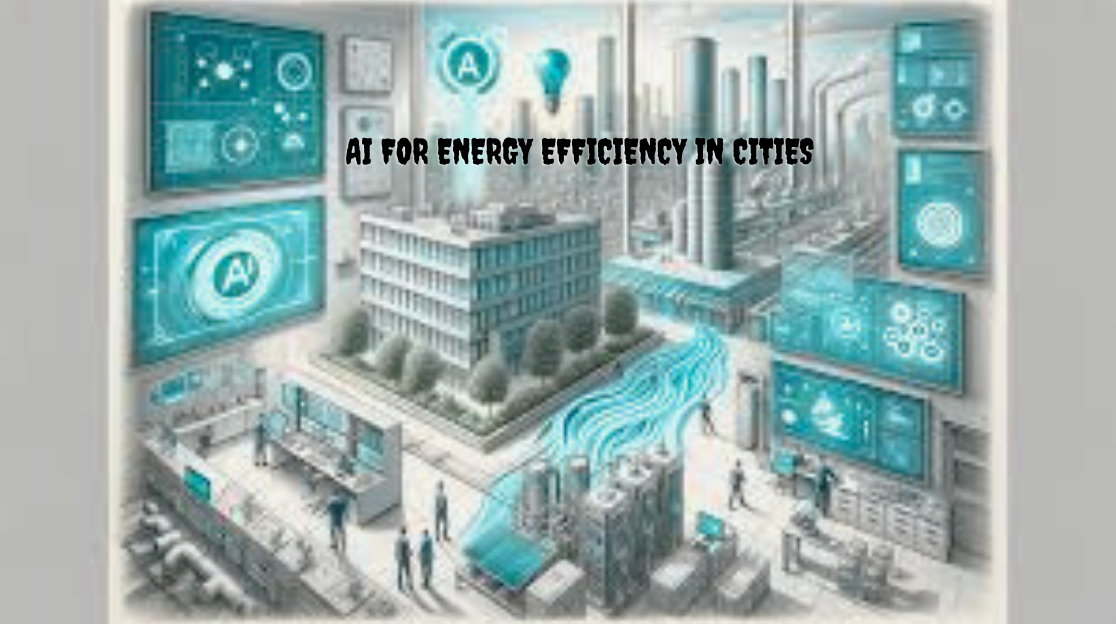As urbanization accelerates worldwide, cities face mounting pressure to manage energy consumption effectively. With growing populations and increasing demands for energy, optimizing energy efficiency has become a priority for urban planners and policymakers.
Artificial Intelligence (AI) offers innovative solutions that can significantly enhance energy management in cities, leading to reduced costs, lower emissions, and improved quality of life. This article explores how AI is transforming energy efficiency in urban environments, the technologies involved, and the benefits of its implementation.
The Urban Energy Challenge
Cities are responsible for a substantial portion of global energy consumption and greenhouse gas emissions. Key challenges include:
- High Energy Demand: Urban areas consume about 75% of the world’s energy, leading to strain on infrastructure and resources.
- Inefficient Infrastructure: Many cities rely on outdated energy systems that are not optimized for current demands.
- Carbon Emissions: The burning of fossil fuels for energy contributes significantly to urban air pollution and climate change.
- Renewable Integration: As cities shift towards renewable energy sources, managing their integration into existing systems poses challenges.
How AI Enhances Energy Efficiency
1. Smart Grids
AI technologies enable the development of smart grids that optimize energy distribution and consumption.
- Demand Forecasting: AI algorithms analyze historical data and usage patterns to predict energy demand, allowing for better load management.
- Dynamic Pricing: Smart grids can implement time-based pricing models, encouraging consumers to use energy during off-peak hours.
2. Building Management Systems
AI-powered building management systems (BMS) help optimize energy use in commercial and residential buildings.
- Automated Control: AI can adjust lighting, heating, and cooling systems based on occupancy patterns and real-time conditions, leading to substantial energy savings.
- Predictive Maintenance: AI analyzes equipment performance data to predict maintenance needs, ensuring systems run efficiently and reducing downtime.
3. Energy Monitoring and Analytics
AI-driven energy monitoring systems provide real-time insights into consumption patterns.
- Data Analysis: AI analyzes vast amounts of data from smart meters and sensors to identify inefficiencies and recommend improvements.
- User Behavior Insights: By understanding how energy is consumed, cities can design targeted campaigns to promote energy-saving behaviors among residents.
4. Renewable Energy Management
AI plays a crucial role in integrating renewable energy sources into urban energy systems.
- Energy Storage Optimization: AI algorithms can optimize the use of battery storage systems, ensuring that energy from renewables is effectively captured and used.
- Grid Stability: AI helps manage the variability of renewable energy sources by predicting supply and demand fluctuations, enhancing grid reliability.
5. Smart Transportation Systems
AI contributes to energy efficiency in urban transportation, a significant component of urban energy consumption.
- Traffic Management: AI systems optimize traffic flow, reducing congestion and fuel consumption for vehicles.
- Public Transit Optimization: AI analyzes ridership data to improve transit schedules and routes, encouraging the use of public transport over personal vehicles.
Benefits of AI in Urban Energy Efficiency
Integrating AI into urban energy systems offers numerous advantages:
- Cost Savings: Improved energy efficiency translates to lower utility bills for residents and businesses.
- Reduced Environmental Impact: Optimizing energy use leads to lower carbon emissions and improved air quality.
- Enhanced Resilience: Smart grids and AI-driven systems increase the resilience of urban energy infrastructure, allowing cities to better handle fluctuations in demand and supply.
- Informed Decision-Making: Data-driven insights empower city officials to make informed decisions about energy policies and investments.
Case Studies of AI in Energy Efficiency
Example 1: San Diego
San Diego has implemented AI-driven energy management systems that analyze consumption data to optimize energy use in municipal buildings. This initiative has led to significant reductions in energy costs and greenhouse gas emissions.
Example 2: Amsterdam
Amsterdam’s smart grid project utilizes AI to manage energy distribution efficiently. The system predicts energy demand and adjusts supply from renewable sources, enhancing grid stability and sustainability.
Example 3: Barcelona
Barcelona employs AI to optimize energy consumption in public buildings. Through real-time monitoring and automated adjustments, the city has achieved notable energy savings and reduced operational costs.
Future Trends in AI for Urban Energy Efficiency
As technology continues to advance, the future of AI in urban energy management will likely see several trends:
- Increased Adoption of IoT: The integration of Internet of Things (IoT) devices will enhance data collection and real-time monitoring, further improving energy management.
- Enhanced Data Analytics: Advanced AI algorithms will provide deeper insights into energy consumption patterns, enabling more tailored solutions.
- Collaboration with Private Sector: Partnerships between public agencies and private companies will drive innovation in energy efficiency technologies.
- Emphasis on Equity: Future initiatives will likely focus on ensuring that all communities benefit from energy efficiency improvements, addressing disparities in access to technology and resources.
Conclusion
AI is revolutionizing energy efficiency in urban environments, offering innovative solutions to the challenges posed by growing populations and energy demands. By optimizing energy management through smart grids, building systems, and transportation, cities can achieve substantial cost savings, reduce environmental impact, and enhance the quality of life for residents.
As cities continue to embrace AI technologies, the path toward sustainable urban living becomes clearer, paving the way for a greener, more efficient future. Embracing these innovations will not only benefit cities but also contribute to global efforts to combat climate change and promote sustainability.

